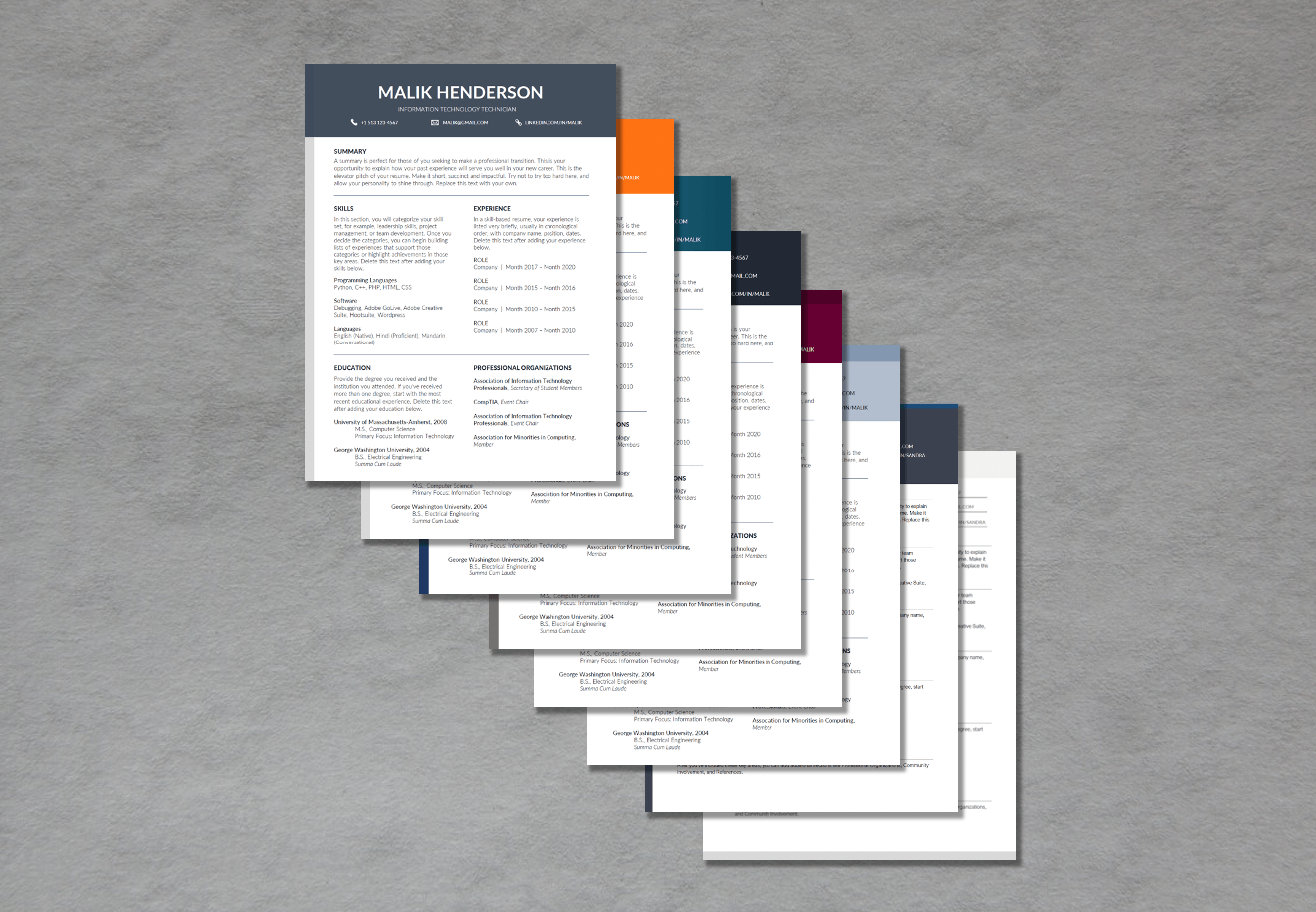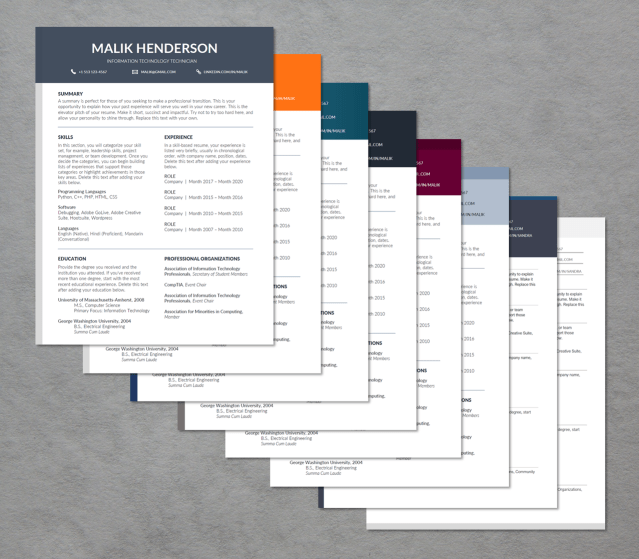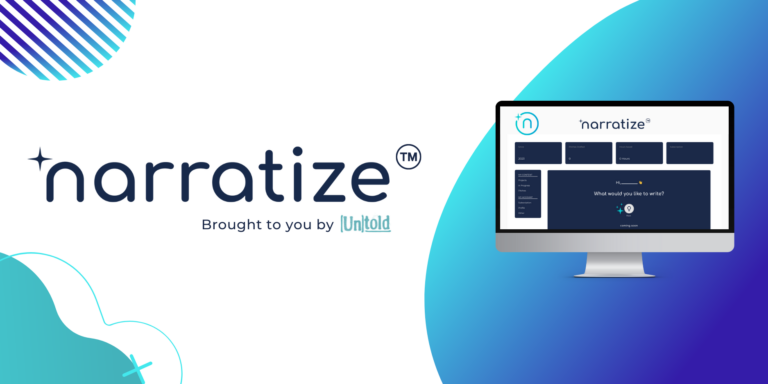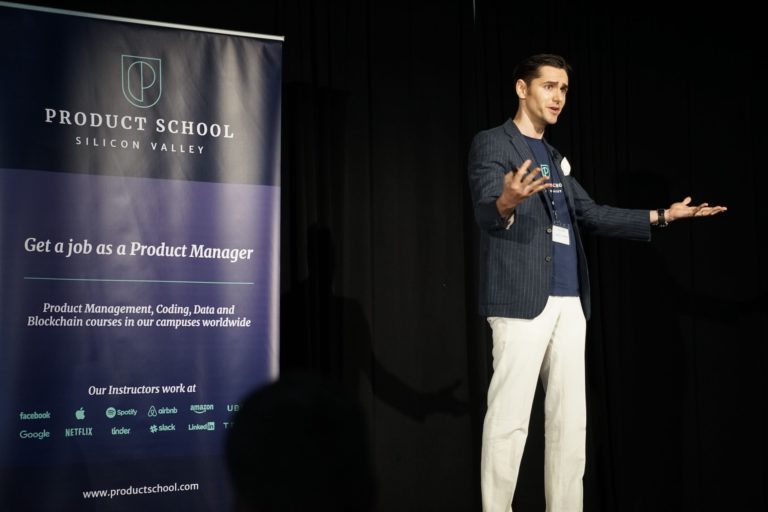Blog >> How to Write A Strong Resume
How to Write A Strong Resume
A resume is often your first shot to show off your professional capabilities in a highly competitive world. But resume-writing is tough, time-consuming work. From free writing tips, to designed and ready-to-use resume templates, and even one-on-one coaching sessions, our PhD-level writing experts have many resources to offer job seekers.
Writing a resume? We’ve Got Your Back
- Scroll on for free resume-writing tips
- Explore 5 key elements of a strong resume
- Customize one of our polished, professionally designed resume templates
- Schedule a 1-hour resume writing consultation for guidance on content and high-level organization strategies. Work with writers who have experience writing and developing resumes and job search materials.
- Brush up on your writing skills to improve your chances of getting hired and promoted
- Transform your academic CV into a high-impact resume with our virtual, completely self-paced microcourse
Free Resume-Writing Tips
The average number of applicants applying to any given job is 250. It takes a recruiter approximately 7 seconds to make a yes or no decision on your resume. Only 2% of applicants get called for an interview.
With so little time to make a good first impression, it’s important to invest in your resume-writing before you submit it. To truly stand out with a high-impact resume, there are five key elements to consider:
- Organization
- Audience
- Summary/Objective
- Design
- Keywords
Below, we uncover ways to improve your resume for a wide variety of audiences and purposes. Read on if you want to hone your professional story and make a strong first impression.
1. Resume Organization
There are three basic organizational approaches to resume writing: chronological, skills-based, or a hybrid approach. The resume format you choose depends on how much experience you have in the field you’re pursuing. A chronologically organized resume is most widely used.
The Chronological Resume lists your professional experiences from most recent to least. It is the appropriate resume option if you have…
- Strong work history with many positions in the same industry
- Held the same position for several years
- Minimal gaps in employment history
But, not everyone fits this description. It seems like every job application favors extensive experience. So, how can those of us with limited experience make it past this ‘chicken or the egg’ obstacle?
That’s where a skills-based resume is helpful. This resume format organizes your experiences by your skills rather than by specific jobs or employers. Skills-based resumes are ideal for applicants if you are…
- Changing careers or industries and don’t have much experience in the field you’re seeking
- A recent high school or college graduate and don’t have much work experience
- Someone who has only held short-term jobs or internships rather than extended periods of experience in one position
- Someone who has gaps in your work history longer than several months or a year
A hybrid resume reflects employment gaps without highlighting them. This structure is a good bet if you are…
- Changing careers
- Re-entering the workforce
- Your professional story is a little more complicated
These resume formats allow you to prioritize content based on audience and experience. If you don’t know which organizational approach is right for you, consider scheduling a Resume Writing Feedback Session with one of our PhD-level writers.
2. Audience
Let us introduce the three types of audiences reading your resume once you hit that submit button: the skimmer, the skeptic, and the decision-maker. They all have one thing in common: On average, they will spend 7 seconds reading your resume before they’ve made a decision on whether to interview you.
Concise resume writing will help all three quickly gather a sense of your qualifications and achievements. That’s why word economy is important to consider as you write. Word economy is the practice of saying something in the shortest way possible without sacrificing meaning or storytelling.
Practice this by reading through each sentence and asking yourself: Can I say this with fewer words? No matter the audience, straightforward communication is usually best. Start with eliminating wordy or vague phrases. Learn more concision tips with our online business writing course, Wordsmith, a self-paced program with resources that are yours to keep.
3. Summary/Objective
What’s the difference between an objective statement and a summary? Which is better? If you do a quick Google search, you’ll see conflicting answers. We’re here to tell you it’s best to ditch the objective. Objectives typically look like this: “My objective is to obtain X position at X company that allows me to utilize X, Y, Z skills.” More than likely, employers already know this information based on your decision to apply at all. But, if you’re committed to the idea of using an objective, try to avoid:
- Vague statements
- Buzzwords (adjectives like hard-working, self-starter, expert, etc.)
- Too many pronouns and prepositions
A summary is a better option because it addresses the value you will bring to the company. A summary should answer three questions:
- Why are you qualified for the position?
- What makes you a good candidate?
- How have your qualifications created results and provided value for other projects and organizations?
When it comes to answering these questions, be specific, provide details, and, as much as possible, quantify your achievements.
4. Design
The truth is an engineer’s resume will be vastly different from a graphic designer’s resume. Since resume design varies across industries, it’s important to research resume examples from your industry before choosing that free online template (only to find you can’t remove the watermark without subscribing to their service). These resume design elements should be considered, no matter your industry:
- Hyperlinks
- Color choice
- Keywords
- Mobile accessibility
- Clean, readable font
If you want to see epic design examples and hear our perspectives on whether or not to feature your headshot or photograph on your resume, enroll in our Resumes That Wow microcourse. It’s fully self-paced, meaning you can join right now and take the course on your own time (Pro Tip: It only takes a couple of hours to complete the course! That way you can get back to writing your resume as soon as you’re energized by our tips and strategies).
5. Keywords
You must thoughtfully consider resume format, audience, summary statement, and design when crafting a compelling and effective narrative… But, you still may not stand out as a fitting candidate if you don’t sprinkle in keywords from the job description.
Incorporating keywords is a balancing act. You should borrow exact verbs, adjectives, and nouns that appear on the job listing but within the context of your accomplishments. And—we can’t believe we have to say this— don’t copy and paste keywords and change the font to white if you know your resume will be run through a digital scanner.
Now… get writing!
Your resume should be reflective of your experience, goals, and professional story. With these 5 key elements of resume writing, you might be wondering,”Where do I start?”
We offer professionally designed resume templates to help jumpstart your writing. If you want specific feedback on the highlights, details, and organization of your resume, engage in a 1-hour virtual consultation with a PhD-level writing professor to perfect your resume.
Resume Templates
Looking for Alt-Ac Opportunities?
Graduate students considering non-academic opportunities are invited to take Resumes That Wow, our virtual microcourse that helps you transform your CV into a high-impact resume that resonates with industry, government, and nonprofit employers.
This mini-course helps you communicate your research, writing, and teaching capabilities to business, government, and non-profit employers. This course is designed for graduate students who are searching for alt-ac opportunities during these challenging times.
Are you a faculty member interested in offering this as a live virtual workshop to your job group? Talk with our team to make it happen.







